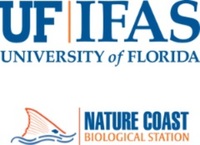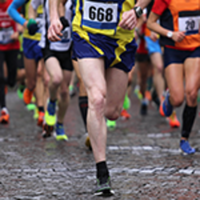Event Description
UF/IFAS NCBS is holding the 1st Annual Workout on Waterfront (WoW) Event. WoW will consist of three races located in Cedar Key, Florida which include a 5K Run, Kayak Challenge and Recycled Regatta. The proceeds from this event will support an aquarium being built at UF/IFAS Nature Coast Biological Station in Cedar Key, Audio/Visual Equipment for the Cedar Key Library and International Coastal Clean-up scheduled in the fall.
Coastal Heritage 5K Run is a beautiful run in Cedar Key, Florida. The race begins on the corner of A Street and 3rd Street near the Lil Shark Park. Participants will enjoy a run through historic Cedar Key and a quaint neighborhood in downtown Cedar Key opening up to a spectacular view of the Gulf of Mexico. The route continues through Cedar Key through airport road to one of the shortest airstrips in Florida and returns to the corner of G Street and 3rd Street. Spectacular water views along the route will be a pleasant run for all participants.
Astena-Otie Kayak Challenge starts at the beach near Lil Shark Park. The Race will run kayakers to Astena-Otie Key where racers will be required to pick-up one piece of trash and then return to the beach. Kayak race is for ages 18 and above.
Repurpose-It-Regatta invites ages 12 and above to build your own boat from recyclable materials prior to the race. All vessels will enter the race at G Street and 3rd Street. (Boats with children require 1 adult). Please see below for building requirements on this event.
Participants can enter up to two events:
Coastal Heritage 5k and Repurpose-it-Regatta or
Astena-Otie Kayak Challenge and Repurpose-it-Regatta
At noon there will be award celebration, lunch (available to purchase) and silent auction event
We hope you can join us for this great day near and on the water!
Event details and schedule
Event Schedule
Coastal Heritage 5K - 192 2nd Street - 6:30 am registration, Start time 8:00 am
Astena-Otie Challenge - 192 2nd Street - 6:30 am registration, Start time 8:00 am
Repurpose-it-Regatta - 3rd Street and G Street - 9:30 am registration, Start time 10:30 am
Parking available at Cedar Key School (951 Whidden Avenue, Cedar Key, FL 32625
and Community Center (809 6th Street, Cedar Key, FL 32625)
Packets are available to pick-up from 5:00 pm to 7:00 pm on Friday, March 17 or beginning at 6:30 am on Saturday, March 18 in Lil Shark Park (192 2nd Street)
Please drop off kayaks at beach from 6:00 am to 7:30 am on Saturday, March 18 and the vessels for the Repurpose-it-Regatta on 3rd Street and G Street between 9:30 am and 10:15 am on the day of the event.
BE AWARE there are oyster shells near the water events. Please wear appropriate clothing and shoes for the events.
Join us for the Repurpose-it-Regatta in Cedar Key, FL on March 18, 2017. Grab a friend or group and enter the race with a self-made boat.
Allowed Materials:
Corrugated Cardboard
Duct Tape – Only on Seams & Bends
Metal
Cotton Rope
Natural fabrics (e.g., cotton, burlap, wool, coir, silk, linen)
Non-pressure-Treated Wood
Paper Milk Cartons
Recyclable Plastics (any plastics used must be recycled in designated containers after the race)
Silicone Caulk – on seams only
Spray Paint
Sails out of materials above
Restricted Materials:
No styrofoam or foam of any kind
No polyurethane paint
No items that are part of another boat or made for boating
No PVC
No non-silicone caulk
No synthetic fabrics (e.g., nylon, polyester, rayon, elastane, spandex)
No Fishing line or monofilament
Following Items Required
Life jackets for all participants
Build your own paddle
Name for Boat
Figure head or decoration – Must comply with materials allowed
All materials must be removed from water after event – Duct tape removed from plastic or materials before recycling
If any piece of your boat fall into the water during the race, it must be removed from the water before crossing the finish line or you will be disqualified
Awards for following:
Fastest Boat
Most Creative Boat
Pulling up the Rear
Winner of Pirate Heat (fastest out of disqualified boats)
Why are some materials restricted?
The pollution of our coasts and oceans with debris and other waste is a global problem, and we all have a part to play in reducing our use of harmful chemicals and plastics, especially plastic ropes, fishing line and “disposable” plastics like bottles, bags, plastic ware, and styrofoam. Therefore, we want to encourage boats in the Repurpose-it Regatta be made from natural materials. Natural fibers and materials break down over time, while plastics and synthetic materials may never biodegrade, or take exceedingly long to biodegrade.
Plastics are a hazard in the ocean in many ways – marine life can easily become entangled or trapped in plastic trash or can mistake the plastic for food and ingest it. Marine life that get tangled in plastic or eat plastic are likely to die painful and slow deaths as a result. This is a big problem, especially for birds, dolphins, whales, and sea turtles.
Plastic in the ocean is also a problem for fisheries and humans because plastic degrades into tiny pieces that make their way into the food web. Small plastic particles (called microplastics) can trap high amounts of toxins on their surface. The plastic and the toxins can carry through the food web into the fish we eat. We are only now realizing the magnitude of this problem and it has unknown effects on fisheries and human health.
This video from the Plastic Pollution Coalition offers a stark reminder of the impact our daily plastic use can have on the ocean. So, what can you do….?
1. Limit use of single use plastics. We should do away with the notion that plastic is “disposable” because plastics take a very long time to degrade. Some of the most common plastic items found in the ocean are plastic bags, plastic caps and lids, plastic drinking straws, and plastic beverage bottles. You can really cut down on plastic use by bringing your own cloth bags to the grocery store, purchasing items packaged in paper or glass whenever possible, using a refillable metal or glass water bottle, and stopping your use of plastic drinking straws.
2. Recycle. Of course, you should recycle whenever possible but recycling is not a true solution to plastic pollution in the ocean – many items are not recyclable and recycling is not 100% efficient. Focus on limiting plastic use first, and recycle when you can’t avoid using plastic.
3. Limit sources of microplastics. Purchase personal care products that do not contain polyethylene and stick to all natural fabrics, as synthetic fibers are some of the most common types of microplastic found in Florida’s waters.
4. Be a responsible angler. Recycle your used monofilament in a specially designed monofilament recycling bin. Monofilament can’t be recycled in regular recycling bins but these special PVC bins can be found at many boat ramps and fishing piers.
5. Participate in marine cleanup events. Many coastal communities host clean-ups you can take part in. Or, gather some friends and start your own shoreline cleanup!
Pledge to make a change. You can take the pledge to reduce your plastic use at www.plasticaware.org




